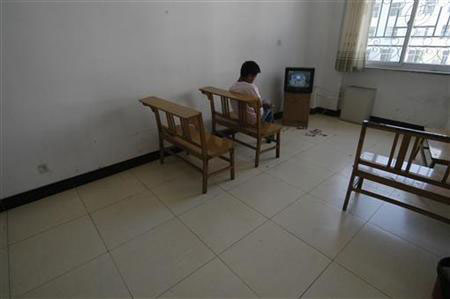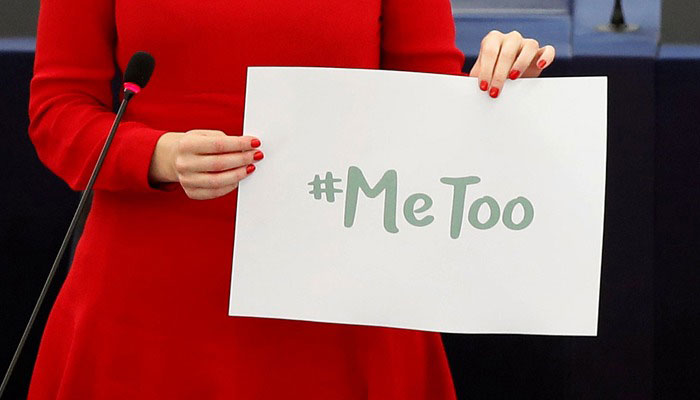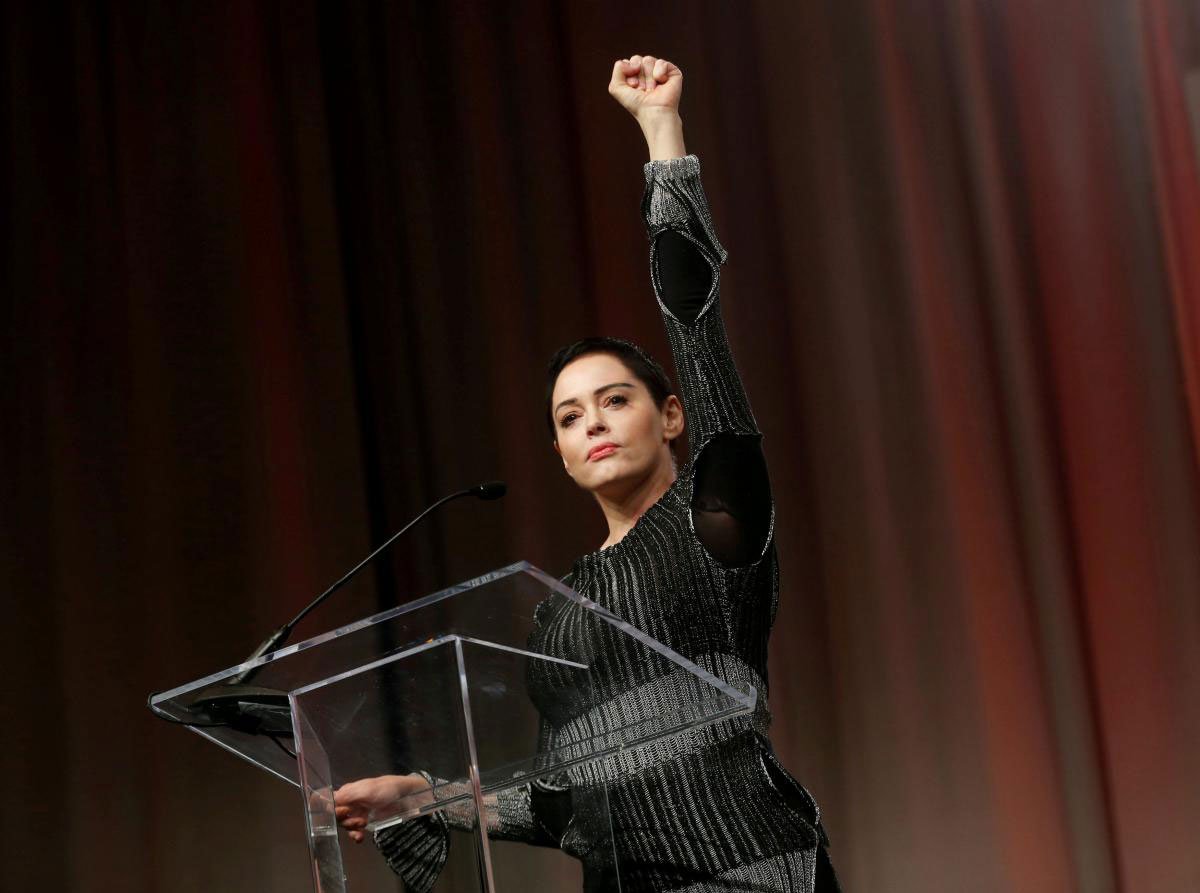“I would have nightmares,” *Hina recalled, “I feared that he would show up at my door any day and hurt me. He thought that he owned me.”
At first blush, Hina’s fiancé seemed like the right choice. He was supportive of her ambitions and independence. But soon the verbal abuse began. She quickly called off the engagement, to put an end to the bullying. Little did she know that the worst had just begun.
The blackmailing continued, but this time on a new platform: the internet. Her ex created multiple email addresses to inundate her with messages. He also created a fake Facebook profile, with her name. Uploaded a profile picture of the two of them, and began adding her friends.
The online harassment continued for a year.
“I was so disturbed that I needed therapy to get through it all,” she tells Geo.tv.
Women, more than men, are subject to online rape threats, harassment and cyberbullying. According to a study by the UK-based Amnesty International, and a software company, Element AI, 1.1 million abusive or problematic tweets were sent to women last year- or one is sent every 30 seconds. The study used advanced data science and machine learning techniques to extrapolate data about the scale of abuse that women face on Twitter.
Pakistan’s first-ever study on online violence against women was published by the Lahore-based Digital Rights Foundation (DRF) in May 2017. The research found that 40 per cent women in the country face various forms of harassment on the internet, while a staggering 72 per cent do not know about the cybercrime laws dealing with online harassment, including social media sites like Facebook and Twitter.
“The fact that women do not see themselves as owners of online spaces is a recurring problem,” the report stated. “The prevalent feeling of insecurity amongst such a large sample of women points to the hostility that they face in these spaces.”
Despite the United Nations and digital rights groups terming online violence as a serious issue, Pakistani women feel that their complaints are not dealt with seriously by relevant authorities and social media sites alike. Moreover, peers, friends and family members continue to treat such threats as something which cannot have grave implications. Women who expose harassment and rape threats are asked to either ignore online violence or use the block option. Some families restrict women from accessing the internet, thereafter.
But the DRF research argues that such harassment should be seen as an extension of violence against women otherwise, and an overt expression of gender discrimination: “Online violence encompasses and is encompassed by offline socio-cultural issues such as domestic abuse and sexual harassment.”

The debate on the issue was limited in Pakistan, until the murder of Pakistani starlet, Qandeel Baloch, in 2016. She was often accused of posting bold and risqué videos, which would be flooded with abusive comments from men and even women.
In the West, arguably the most harrowing instance of how ugly online harassment can be was the infamous Gamergate of 2014. American video game developer Zoe Quin faced a torrent of online abuse, rape threats, and had her personal information published online after her ex-boyfriend accused her of having a relationship with a video game journalist. He accused her of getting good reviews for her game highlighting mental health issues only because of the alleged relationship. The abuse reached a point that industry giants, Sony and Blizzard Entertainment, were forced to issue statements to strongly denounce the harassment and revisit their own gender policies.
The recent #Metoo movement, intimated by actor Alyssa Milano, helped hundreds of thousands of women to speak out about sexual harassment online using the hashtag. Beans were spilled. Industry moguls were shamed. Harassers were suspended from their jobs. In Pakistan, the CEO of a music platform was forced to step down after women took to Twitter to expose him. In neighbouring India, Bollywood, long accused of perpetuating violent rape culture in the society, saw various famous names being accused. Actresses and directors apologised for directing item numbers. There was no longer space for rape apologists. Farah Khan and Farhan Khan knew that, so, instead of offering a half-baked apology, rightly announced support for the sexual harassment victims of their brother and cousin, respectively, and famous film director, Sajid Khan.

Sharmeen*, a clinical psychologist, faced a stream of abuse from a stranger —a man who she had never met, simply because she refused to answer a query about a course her start-up consultancy was offering.
The man wrote to the consultancy via Facebook, demanding to know course details, for his girlfriend. The organisation responded to his queries, but he needed more answers.
“He wanted to talk to me personally,” said Sharmeen, “I asked him to connect me directly to his girlfriend.” But he refused.
“He threatened to bring his guy friends to my organisation’s premises.” The bullying only stopped after one of Sharmeen’s student, who had a family connection with the man, intervened.
“I still don't understand what I did to trigger this.”
Bullying can take a serious toll on the mental well-being of a victim, explains Areej Khan, a clinical psychologist in Karachi. “Typical symptoms include depression, aggression and low self-esteem. One can avoid going to a place where such bullying happens in real life, but how do you avoid it online?”
More than 44 per cent of the people interviewed by the US-based Pew Research Centre, for its study “Online Harassment 2017,” said that their most recent online bullying experience caused mental or emotional stress. While, 44 per cent said they found the incident “extremely” or “very” upsetting, and 29 per cent felt that their physical safety (or the physical safety of those close to them) was at risk.
In Pakistan, the DRF also provides psychological counselling through its helpline, established in 2016 after Qandeel Baloch’s murder.

Pakistan’s Prevention of Electronic Crimes Act, 2016, was passed to outlaw cybercrimes. Even though it was excoriated for giving the law enforcement agencies over-arching powers to detain and prosecute individuals, the bill was nonetheless hailed as an important step to ensure that online sexual harassment, stalking and dissemination of private pictures without consent are punishable crimes.
A person convicted of morphing pictures or videos of an individual, on an online platform, such as Facebook, Twitter or WhatsApp can be sentenced to a maximum of five years in prison. And if the victim is a minor, the jail term can be extended to 10 years.
The bill also touched upon cyberstalking. Stalking with “the intent to coerce or intimidate or harass any person” on an online platform is punishable to up to three years, under the law.
The state-run FIA, which is tasked to probe cybercrimes, has no publicly available data on the number of complaints received in the last three years or of those convicted, although officials said they provide data to organisations when requested.
Speaking with Geo.tv, a senior official at the FIA's Cyber Crime Wing Imran Haider said a total of 850 complaints were received by the wing regarding online women harassment from September 2016 to December 2018. Of the total registered 587 cases, 81 cases are related to online harassment.
Separately, the private DRF says that its helpline received 2,781 calls from December 2016 to November 2018, and has witnessed steady increase in reporting since 2016. Moreover, 134 people reached out to them via emails. Among the complaints, 41 per cent were men, while 59 per cent were women and 0.3 per cent were non-binary individuals —a broad term for people who may or may not identify with one gender.
The majority of cases were related to non-consensual usage of information, followed by blackmailing, hacking, unsolicited contact, defamation, fake profiles, online stalking, threats, gender-based bullying and also complaints about how the FIA was handling their case.
A major hurdle for those reporting a crime is that the FIA requires the complainant to visit their regional office to initiate legal proceedings, which is difficult for women from rural areas. However, in October, the ministry of interior allowed the agency to open 15 new cyber-crime centres across the country. FIA's Imran Haider told Geo.tv that steps have been taken to facilitate women complainants. This includes a special desk and hiring of women investigators, who are responsible for mainly handling complaints by women.

On October 12, 2017, American actor Rose McGowan tried to log onto her Twitter account, only to find it locked. According to a statement released by the microblogging site, the account was suspended after a tweet —part of a series of tweets detailing former Hollywood mogul Harvey Weinstein’s misconduct —had displayed the phone number of a prominent person.
McGowan then took to Instagram to slam Twitter. Her peers and fans deluged the social networking site with complaints. The 12-hour lock was eventually lifted, early than its duration.
The incident was one of many for which popular social media firms, like Facebook and Twitter, are at the receiving end of a lot of flak. Women complain that harmless memes and posts against misogyny are taken down much more swiftly then posts that bully or target women.
TechCrunch, an American online publisher, in a 2017 article reported how women who faced targeted harassment on Twitter had their accounts suspended after coordinated mass reporting by their abusers. On the contrary, genuine complaints were disregarded because only one account —that of the woman —was reporting the harassment.
In May, Twitter revised its strategy against internet trolls, promising to use behaviour signals to identify harassers on the social network and limit the visibility of their tweets.
The new rules led to a four per cent decrease in abuse reports originating from search results and an eight per cent decrease in abuse reports from the conversations that take place as replies to tweets, according to the social media firm.
Instagram in May last year added a new tool to filter out comments aimed at harassing or bullying. The social media site, popular mostly with teens, said the filter would review accounts that have a large number of comments filtered out and would take action and/or ban them if they are found to violate the site's community guidelines.
Facebook also rolled out new anti-bullying and harassment tools in October last year, allowing people to delete multiple troll comments at once.
The social media platforms said they have hired hundreds of moderators and employed artificial intelligence and algorithms to detect abusive content —tools that experts say can efficiently tackle bullying and harassment but might not be enough. Various commentators and European lawmakers in the West have said Facebook and Twitter are either not doing enough or seem incapable.
Last January, shareholders slammed both the companies for playing an “unfortunate role” in “escalating sexual harassment, hate speech and fake news online.” Later, around 80 rights groups accused Facebook of “uneven application” of its community standards. Harassment and threats based on race, religion and sexual orientation are “thriving on the social media site”, while activists’ posts about racial justice routinely were taken down, the groups said.
Speaking with Geo.tv, DRF founder Nighat Dad said that her organisation routinely coordinates with social media sites on policymaking as well as to take up complaints. In her experience, Facebook, Youtube and Google are receptive at taking feedback, while there seems to be no focal person at Twitter for this. WhatsApp, which has become a major source of fake news in our part of the world, seems to also have no proper mechanism in place for receiving and acting swiftly on complaints, Dad added.
While, social media and the internet have empowered women, by bringing their voices to the forefront of conversations, cyber bullying and harassment are also on the uptick. Online abuse, if left unchecked, takes a heavy toll on the emotional wellbeing of those on the receiving end.
What are the private and public sector willing to do to stop the silencing of women?
*Names have been changed to protect identities.
Cover photo by Haseem uz Zaman


